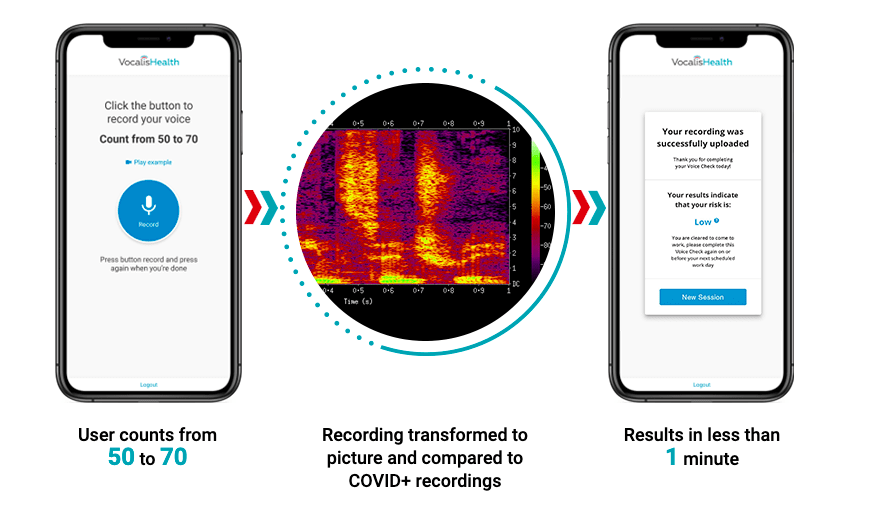While we are more than one year into the pandemic, detecting COVID-19 is still not easy. You’ll know if you need to get checked if you have a sore throat, fever, cough, or loss of smell or taste. But a lot of patients are asymptomatic. Here is when solutions like Vocalis come into play. The company is developing a way to pre-screen people by using their voice, and detect if they have COVID-19.
Vocalis has developed an AI that identifies voice characteristics of patients having various diseases without needing to visit a hospital. This becomes extremely useful for COVID-19 where temperature guns can’t detect asymptotic patients. Hence, Vocalis’ solution could help.
The company collects tons of data related to a person’s voice. Vocalis has developed a technology that identifies characteristics of a potential disease based on the analysis of voice collected from a person. As TNW reports, Vocalis’ algorithm extracts 512 features from a voice sample and makes an image — a spectrogram. This image can be used to diagnose possible diseases.
When it detects a specific disease, Vocalis first holds clinical trials to recognize what kind of voice recordings it would need to collect from signatures of audio to identify the disease. To detect COVID-19, the AI needs to identify characteristics of symptoms such as fever, headache, and shortness of breath.
Vocalis asks patients to count from 50 to 70 to train the algorithm. Moreover, it preserves a patient’s privacy by not giving away anything about their identity. According to Dr. Shady Hasan, the co-founder of Vocalis, this way also aids them to maintain consistency of samples as compared to a dataset with spoken phrases. As per the report, Vocalis’ pre-training dataset includes over 275,000 different speakers in various languages.
Vocalis entered a joint study with the Municipal Corporation of Greater Mumbai in India. In this study, which had a sample size of 2,000 patients where researchers found that the algorithm was 81.2% accurate in detecting COVID-19 – out of which many were asymptomatic patients. This study included people speaking multiple languages including English, Hindi, Marathi, and Gujarati.
As of now, Vocalis’ tools are deployed in the US, Chile, Indonesia, South Africa, Romania, and Luxembourg in the public and private sectors.

